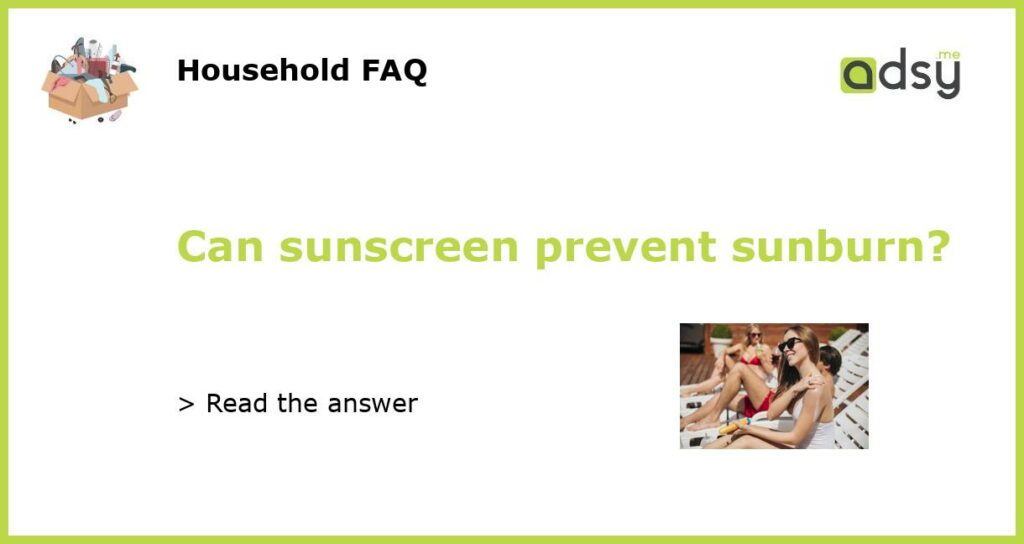The Science Behind Sunburn
Before we delve into whether sunscreen can prevent sunburn, it is important to understand the science behind sunburn. Sunburn is a result of overexposure to ultraviolet (UV) rays from the sun. There are three types of UV rays: UVA, UVB, and UVC. UVC rays are mostly absorbed by the Earth’s atmosphere and do not reach the skin. However, UVA and UVB rays can cause damage to the skin.
How Sunscreen Works
Sunscreen works by either absorbing or reflecting UV radiation, effectively protecting the skin from sunburn. Chemical sunscreens contain ingredients that absorb UV rays, while physical sunscreens contain minerals that reflect UV rays.
Chemical sunscreens typically contain active ingredients such as oxybenzone, avobenzone, and octinoxate. These ingredients absorb UV radiation and convert it into heat, preventing it from penetrating the skin.
On the other hand, physical sunscreens contain active ingredients such as zinc oxide and titanium dioxide. These minerals create a physical barrier on the skin that reflects UV rays away from the body.
Does Sunscreen Prevent Sunburn?
Yes, when used correctly, sunscreen can prevent sunburn. The American Academy of Dermatology recommends using a broad-spectrum sunscreen with a sun protection factor (SPF) of 30 or higher. Broad-spectrum sunscreens protect against both UVA and UVB rays.
It is important to apply sunscreen generously and evenly to all exposed skin at least 15 minutes before sun exposure. Reapply every two hours or immediately after swimming or excessive sweating.
However, it is worth noting that no sunscreen can provide 100% protection against the sun’s rays. Even with sunscreen, some UV radiation may still reach the skin, especially if the sunscreen is not applied correctly or if the individual spends a prolonged amount of time in the sun.
Additional Sun Protection Measures
While sunscreen is an essential tool in preventing sunburn, there are additional measures that can be taken to further protect the skin from the sun’s harmful rays.
1. Seek shade: Stay in the shade, especially during the peak hours of the sun’s rays, which are typically between 10 am and 4 pm.
2. Wear protective clothing: Cover up with long-sleeved shirts, pants, and a wide-brimmed hat to provide extra protection to the skin.
3. Wear sunglasses: Protect your eyes from UV rays by wearing sunglasses that block 100% of UVA and UVB rays.
Sunscreen is an effective tool in preventing sunburn when used correctly, in combination with other sun protection measures. Applying sunscreen generously, using a broad-spectrum SPF 30 or higher, and reapplying regularly are key to maximizing its effectiveness.
Remember, sunburn not only causes discomfort but also increases the risk of skin cancer. So, make sunscreen a part of your daily routine, especially when spending time outdoors.






